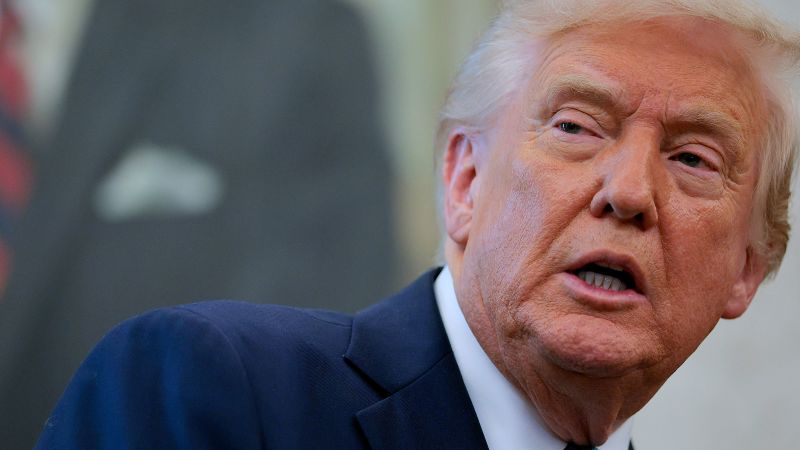In a surprising turn of events, U.S. President Donald Trump has indicated a possible shift in his administration’s ongoing trade war with China. During a recent news event at the White House, Trump announced that the high tariffs imposed on Chinese goods, currently as high as 145%, would be reduced significantly, although he clarified that they would not reach zero. This statement could be interpreted as a de-escalation in what has been a fierce dispute between the two largest economies in the world, following a period characterized by aggressive posturing and reciprocal tariffs that have put substantial strain on international trade.
During a Q&A session with reporters in the Oval Office, Trump stated, “145% is very high and it won’t be that high. It won’t be anywhere near that high. It’ll come down substantially. But it won’t be zero.” His remarks come in light of Treasury Secretary Scott Bessent’s earlier assertions regarding the damaging impacts of the tariffs, which he remarked had essentially created an embargo on trade between the United States and China. Bessent, speaking at a private investment conference organized by JP Morgan Chase, emphasized the unsustainable nature of the trade war, hinting that a de-escalation might occur soon.
Furthermore, Bessent advocated for a rebalancing of trade rather than outright severance or a hard decoupling of economic ties between the two nations. This suggests that both sides are now exploring more constructive avenues for negotiation that could ease the economic tensions currently affecting global markets and supply chains, along with fuelling fears of a recession. The imposition of unprecedented tariffs has disrupted various industries and created uncertainties for stakeholders across the globe.
As tensions have escalated, China has maintained a staunch stance against the U.S. tariffs. The Chinese government has retaliated with its own hikes, raising tariffs on U.S. goods to 125%. Moreover, China has taken additional measures aimed at U.S. businesses, including enhancing export restrictions on critical minerals vital for various technologies, from consumer electronics to defense systems. The retaliations extend to cultural industries as well, with China’s decision to limit the number of Hollywood films shown within its borders and the recent return of at least two Boeing aircraft destined for Chinese airlines to the U.S.
Despite this hostile environment, Trump has reiterated his strong relationship with China’s President Xi Jinping, expressing hope that Xi will initiate contact to negotiate terms. Reports indicate that Trump is awaiting a call from the Chinese leader and has instructed his team not to initiate discussions. However, rather than engaging directly, Xi has redirected efforts towards building stronger diplomatic relations with other trade partners, countering the U.S.’s intentions to economically isolate China through the tariff war.
On the same day as Trump’s announcement, he expressed optimism regarding potential negotiations, stating he would be “very nice” to the Chinese leadership. When confronted with questions about whether the U.S. would adopt a hardline approach in negotiations or leverage the ongoing Covid-19 pandemic as a pressure point, Trump firmly dismissed the idea, emphasizing the necessity for a cordial approach.
Trump further reiterated that mutual cooperation is essential, highlighting, “but ultimately, they have to make a deal because otherwise they’re not going to be able to deal in the United States, and we want them involved.” His comments encapsulate a vision for the U.S.-China relationship where both nations can move forward collaboratively rather than adversarially. Trump concluded optimistically, asserting his belief that both countries would ultimately coexist harmoniously and prosper through cooperative efforts.



